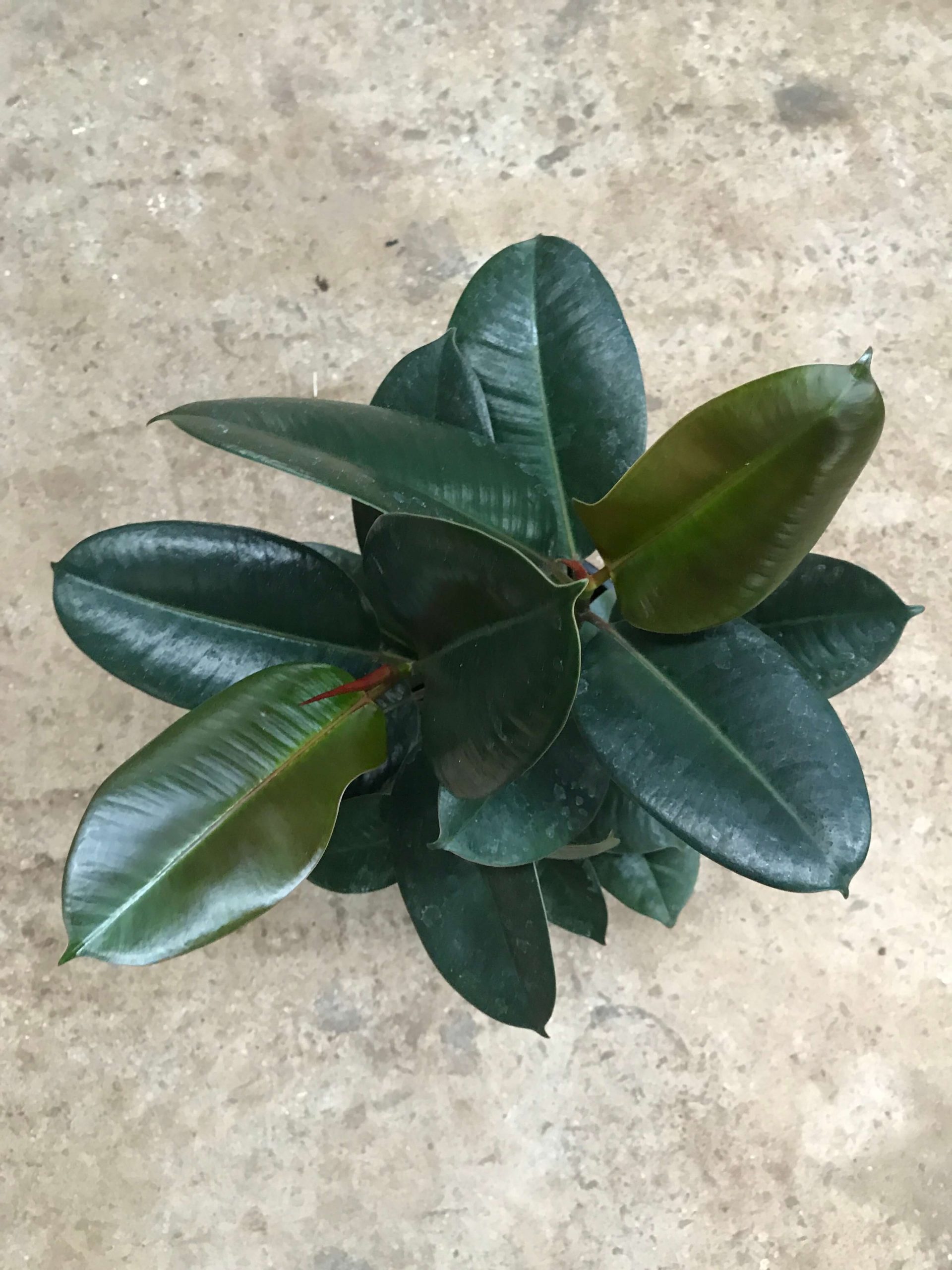
Ficus Elastica Robusta (Green) Westlake Nursery
Names: Rubber plant or tree, rubber bush (common). Ficus elastica (botanical/scientific). Max Growth (approx): Height 10ft (3m). Poisonous for pets: Toxic to cats and dogs. Cleaning: Your plant's leaves will appreciate being cleaned gently with tepid water and you will enjoy the glossy clean dust dust-free look. Use a very soft cloth or sponge.

Ficus Elastica Floral Soul
Pick a stem of your Ficus elastica with at least 3 leaves and cut a length of 4-5 inches, cutting right below a node at the bottom. Remove any leaves at the bottom of the cutting so they won't sit in the soil (or water, if you propagate in water).

Ficus Elastica Robusta
The Ficus Elastica is a tropical plant with larges leaves that have beautiful patterns on it. It's not a great plant for beginners, because it's not very forgiving when you don't give it the care that it needs. However, if you can keep this plant happy, it will be one of the most amazing plants in your house or garden..
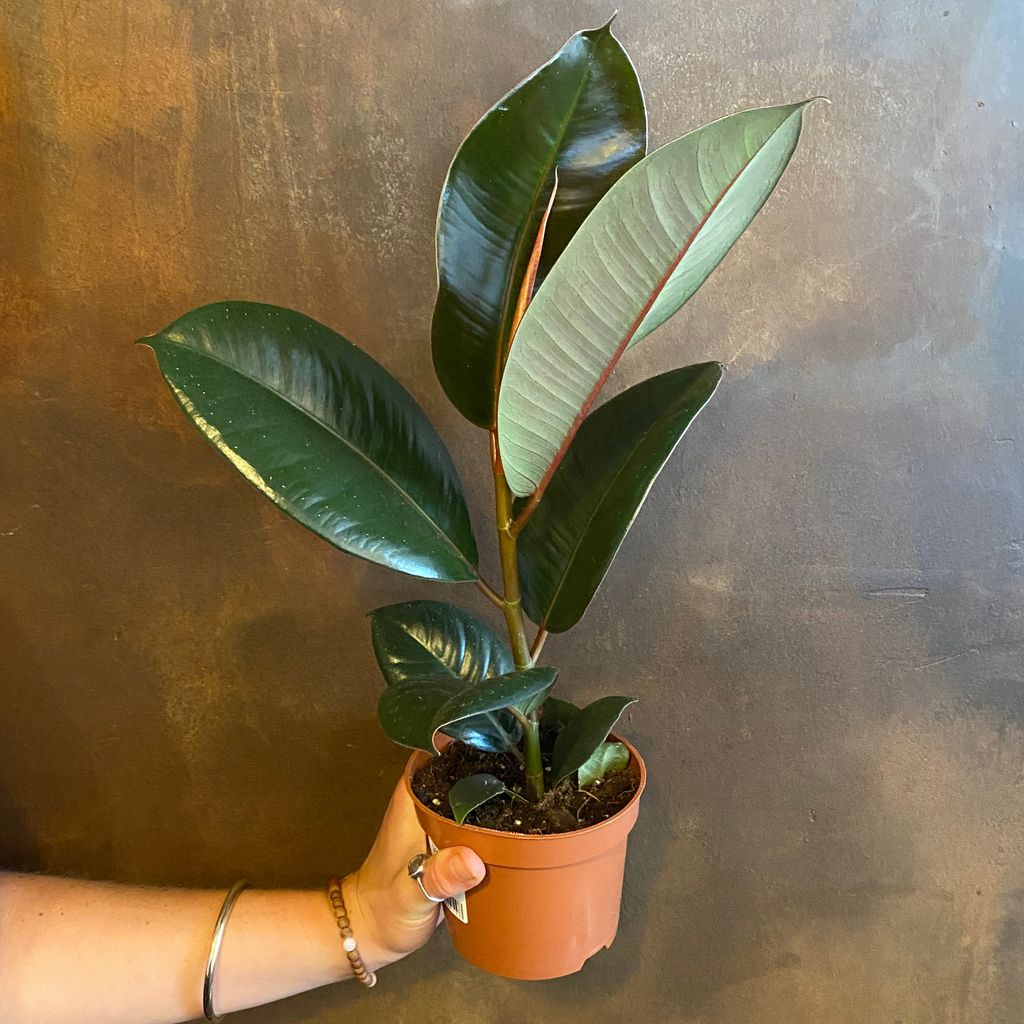
Ficus elastica ‘Robusta’ (12cm pot) grow urban.
Ficus (/ ˈ f ɪ k ʊ s /) adalah genus tumbuh-tumbuhan yang secara alamiah tumbuh di daerah tropis dengan sejumlah spesies hidup di zona ugahari.Terdiri dari sekitar 850 spesies, jenis-jenis Ficus ini dapat berupa pohon kayu, semak, tumbuhan menjalar dan epifit serta hemi-epifit dalam familia Moraceae.Secara umum jenis-jenisnya dikenal sebagai ara, pohon ara atau kayu ara (Mink. kayu aro; Sd.

Ficus elastica o robusta Consigli, Coltivazione e Cura
Ficus elastica "Robusta", also known as the Rubber plant, has become a very popular and attractive indoor plant. Ficus Robusta has very large deep green leaves, often 10″ long and 5″ wide. The Ficus elastica species is a native of India, and grows to be a very large tree, reaching 100′ in height. Robusta is a variety of this species.
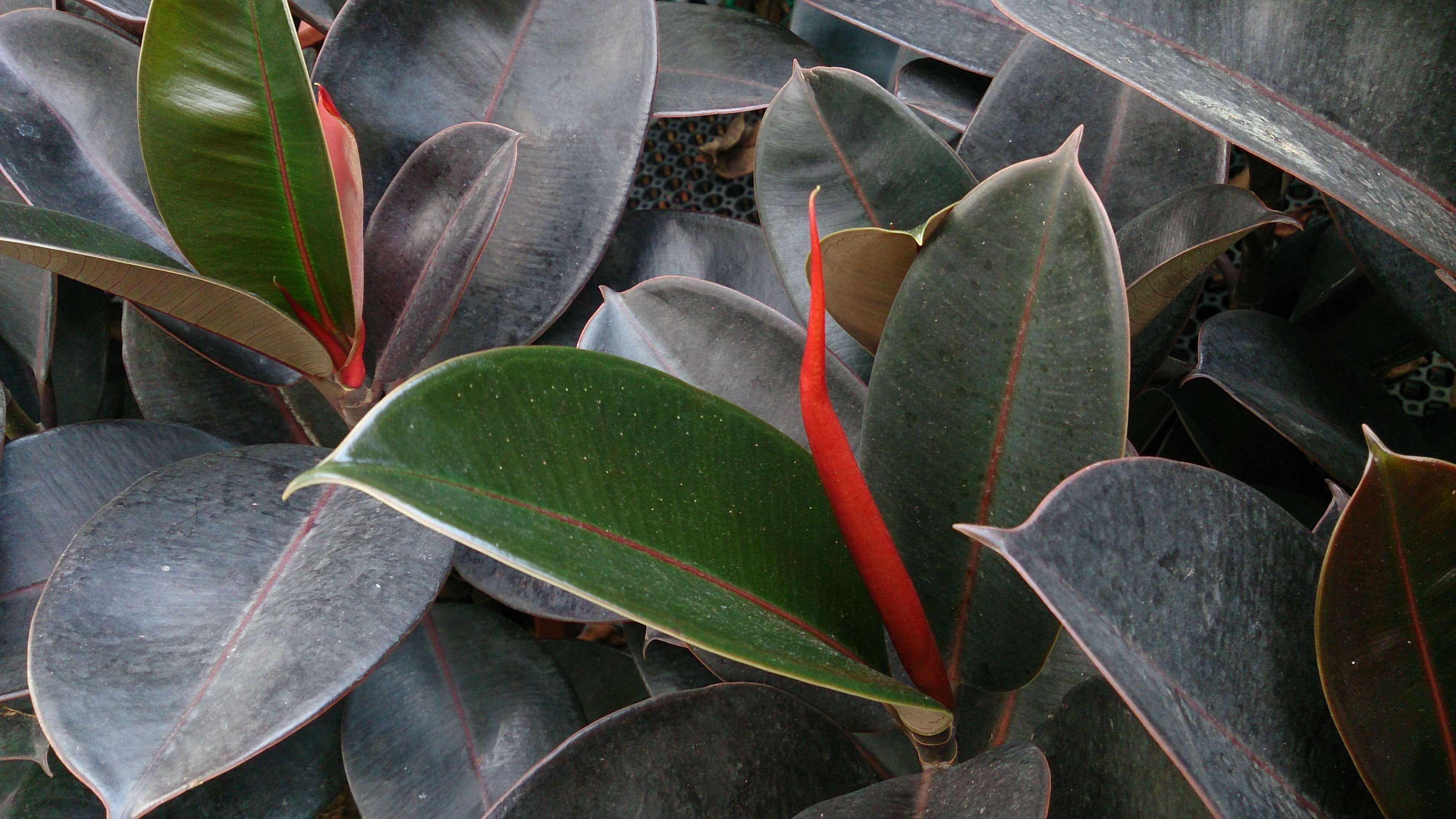
Ficus elastica Riverside Garden Centre
The common name of Ficus elastica, rubber fig tree, refers to the milky white sap that is tapped from the tree's bark ( Whistler, 2000; Starr et al., 2003 ). The name Ficus elastica was published by Roxburgh in 1814. The species is often cited as F. elastica Roxb.

Ficus ELASTICA Guía de cuidados para evitar problemas
Ficus elastica 'Robusta' Ficus elastica 'Robusta' is hardier and has bigger leaves than the Decora variety. It's considered a more modern version of the Ficus elastica var. decora with thick stems and glossy leaves. You'll need a pot around 14cm in diameter. 'Robusta' can handle low humidity and can reach a height of around 1.8.

FICUS ELASTICA The Garden of Eaden
Prolonged stay in the shade may slow down the growth of the plant. Temperature: the temperature should be kept within +64.4°F - 75.2°F in summer, +60.8°F - +64.4°F in winter. Air humidity: Abidjan likes frequent sprays, a warm shower once a month (with soil closed) and rubbing. In winter, you can only wipe the leaves with a wet sponge.
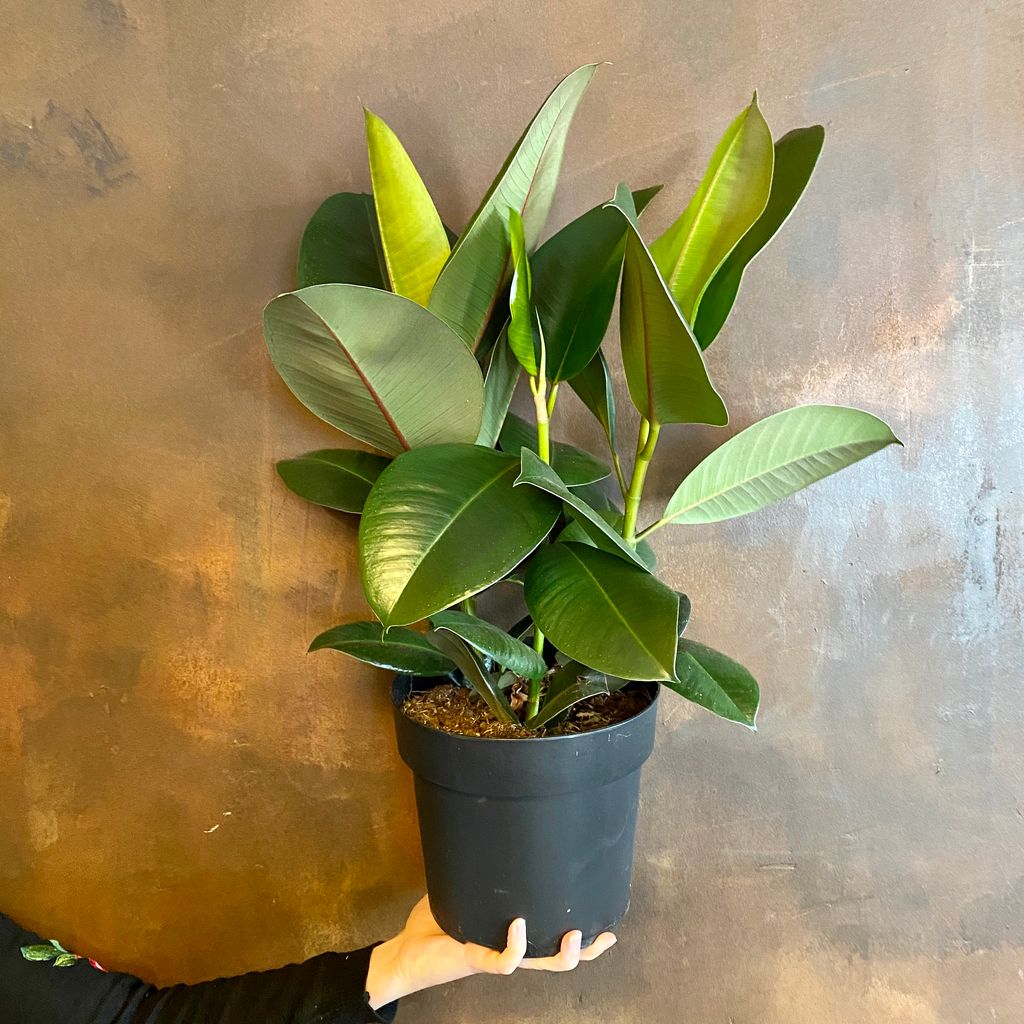
Ficus elastica ‘Robusta’ grow urban.
Ficus elastica, the rubber fig, rubber bush, rubber tree, rubber plant, or Indian rubber bush, Indian rubber tree, is a species of flowering plant in the family Moraceae, native to eastern parts of South and Southeast Asia.It has become naturalized in Sri Lanka, the West Indies, and the US state of Florida. Despite its common names, it is not used in the commercial production of natural rubber.

Meet the Rubber Plant (Ficus Elastica) Retreat Plant Company
Karet merah atau karet kebo (Ficus elastica) adalah spesies tumbuhan yang berasal dari genus ficus, asli timur laut India, Nepal, Bhutan, Myanmar, China (Yunnan), Malaysia, dan Indonesia.Kemudian dibawa ke Sri Lanka, Hindia Barat, dan Negara bagian Florida. Tumbuhan termasuk jenis dikotil dari kelompok ara/beringin, tinggi batang mencapai 25-30 meter, dengan diameter batang sampai 2 meter (6.6.

Ficus elastica Rubber Fig The Seed Vine
Discover the fascinating world of Ficus elastica, also known as the rubber plant. Learn about the different varieties, care requirements, propagation methods, and common issues of this stunning houseplant. Whether you're a seasoned plant parent or a beginner, this article provides valuable information on growing and maintaining Ficus elastica in your indoor garden.
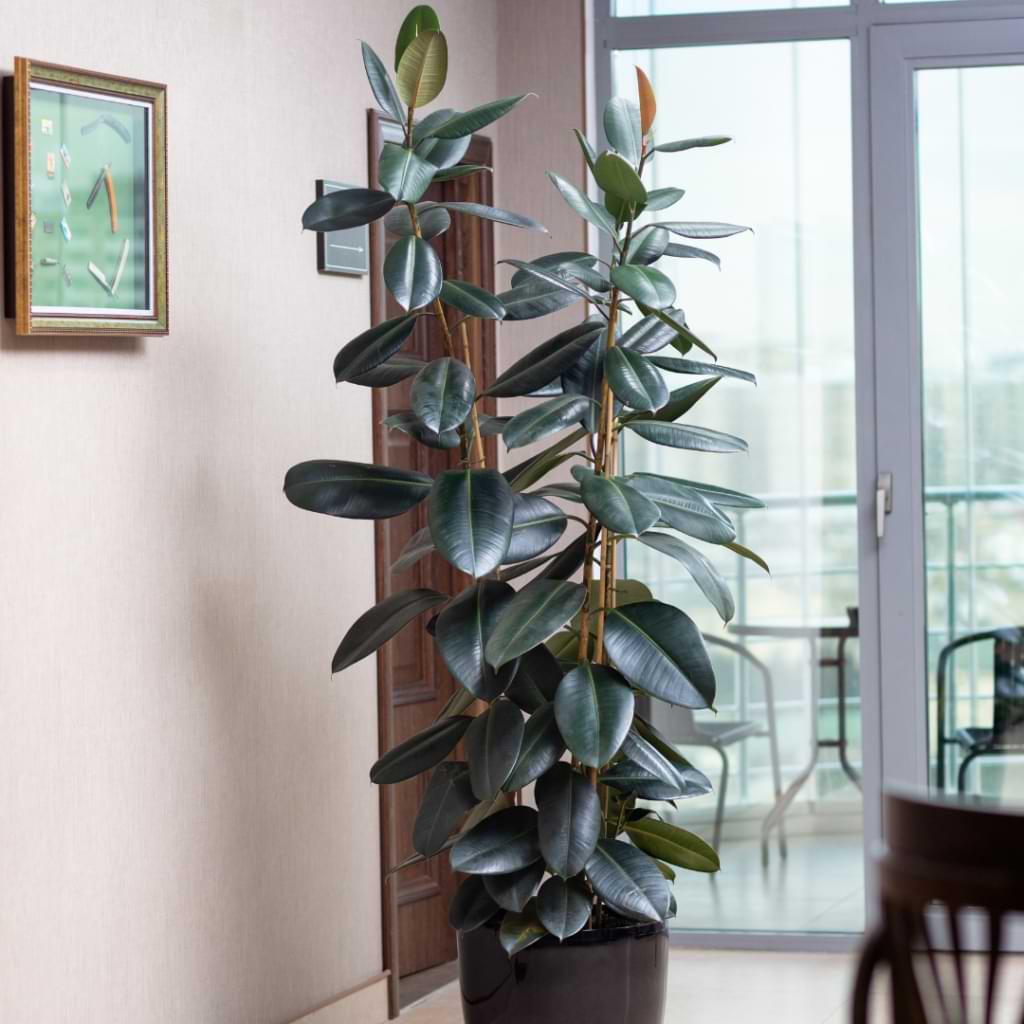
Ficus Elastica Care Rubber Tree Fiddle Leaf Fig Plant
Ficus elastica, commonly called India rubber plant, India rubber tree or India rubber fig, is native from the Himalayas to Malaysia, Sumatra and Java. It is a broadleaf evergreen shrub or tree that may grow to 50-100' tall in its native habitat. It is widely grown in the tropics as an ornamental tree. Mature trees develop banyan-like aerial.
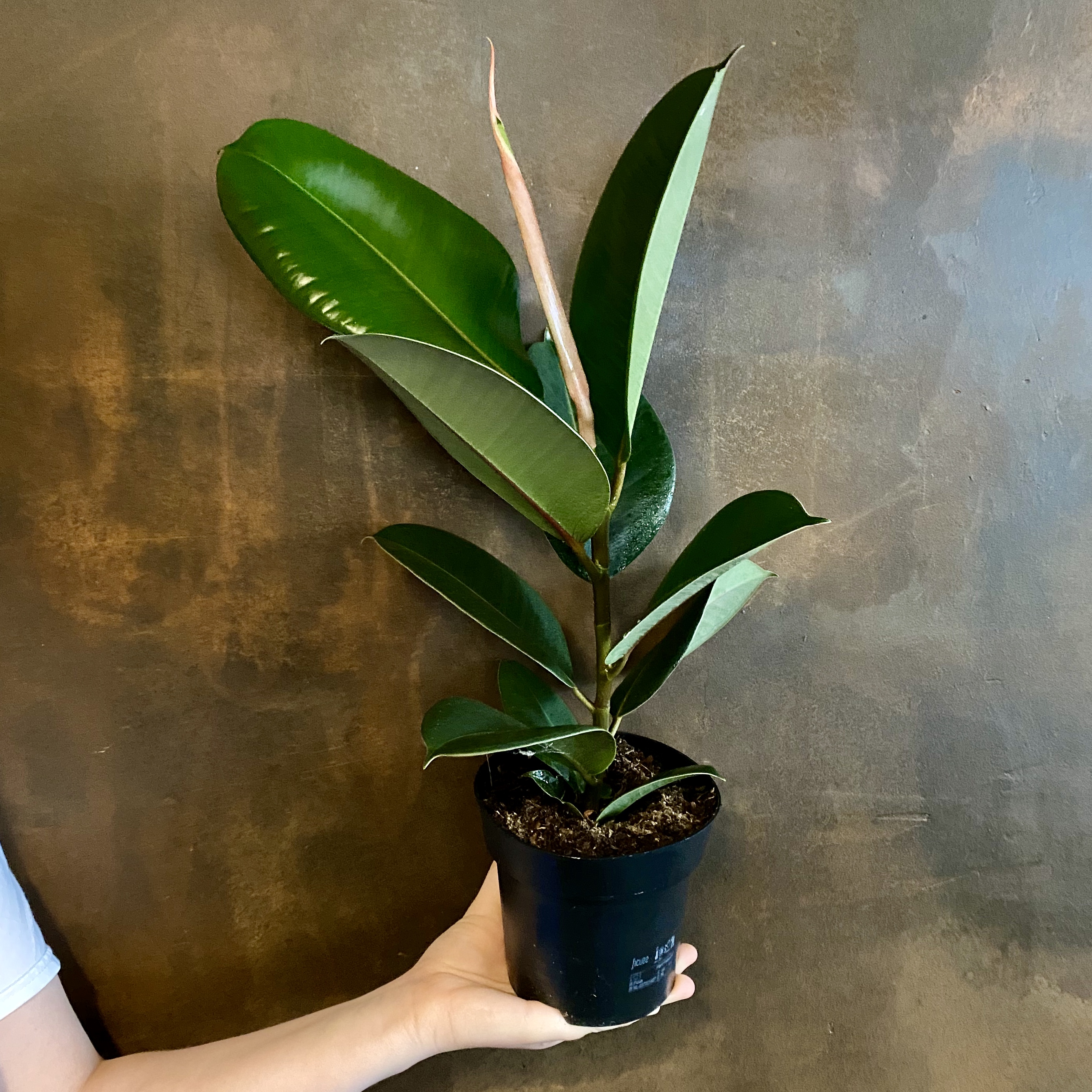
Ficus elastica ‘Robusta’ (14cm pot) grow urban.
Rubber tree (Ficus elastica), also known as rubber plant, is a favorite houseplant thanks to its broad, glossy, emerald-hued leaves and impressive growth rate. This tropical plant can grow up to 100 feet tall in its natural habitat or over six feet tall indoors in just a few years with proper care. Because it requires warm temperatures year.

Ficus elastica GLISSANDO Garden Center
Prepare the pot with well-draining, but moist soil and put your cutting in the soil. Take a small Ziploc bag, or a larger see-through plastic bag if your cutting is larger, and place this over the cutting. This plastic cover will trap humidity and provide your Ficus cutting with the ideal growing environment.
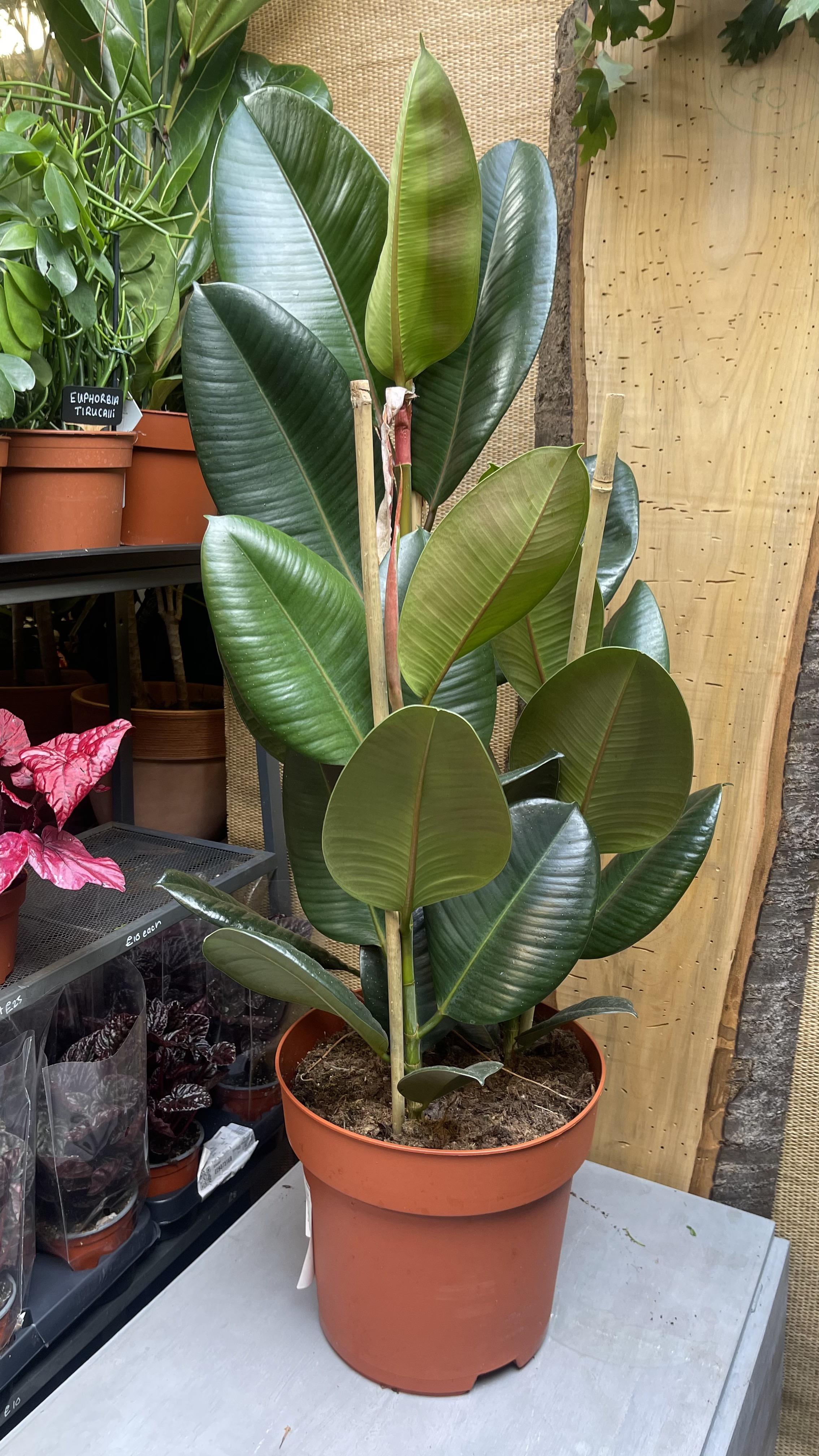
Ficus Elastica Robusta Rubber Plant
Ficus Elastica, yang juga dikenal dengan nama umum "Karet India" atau "Tanaman Karet," adalah tanaman hias yang berasal dari Asia Tenggara, khususnya India, Nepal, Bhutan, dan Malaysia. Tanaman ini dikenal dengan nama "Elastica" karena getah putih susu yang dikeluarkannya jika batangnya terluka. Ficus Elastica adalah anggota.

Ficus Elastica Ruby The Grow Centre
Ficus trees are adapted to diverse environments and have some of the highest rates of photosynthesis among trees.Ficus leaves can deposit one or more of the three major mineral types found in leaves: amorphous calcium carbonate cystoliths, calcium oxalates, and silica phytoliths. In order to better understand the functions of these minerals and the control that the leaf exerts over mineral.